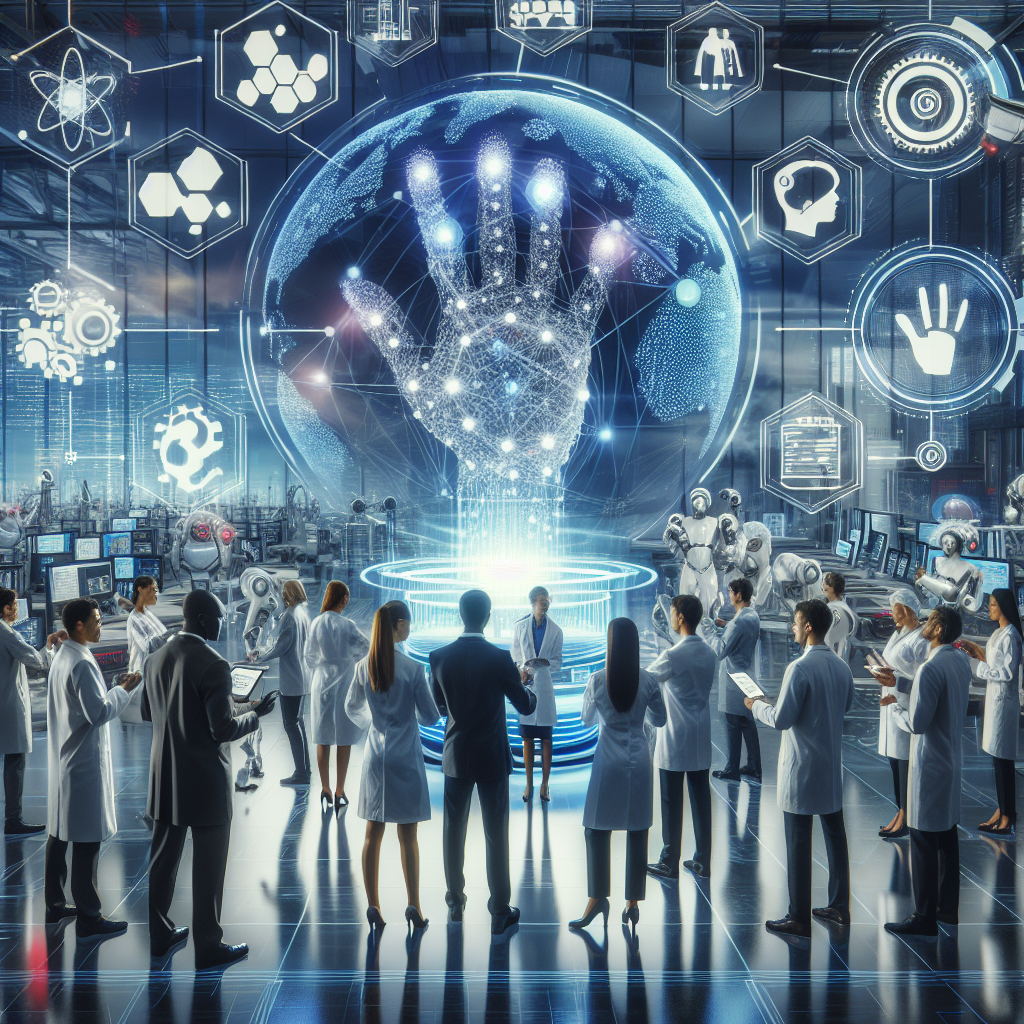Artificial General Intelligence (AGI) is the next frontier in the field of artificial intelligence, representing a significant leap from the narrow AI systems that currently dominate the industry. AGI refers to a form of AI that possesses human-level cognitive abilities, enabling it to perform a wide range of intellectual tasks with the same level of proficiency as a human being. While AGI is still in the early stages of development, its potential impact on industries and society as a whole is immense.
Revolutionizing Industries
The advent of AGI is set to revolutionize a wide range of industries, transforming the way businesses operate and creating new opportunities for growth and innovation. One of the key areas where AGI is expected to have a significant impact is in the field of healthcare. AGI-powered systems can analyze vast amounts of medical data and assist healthcare professionals in diagnosing diseases, predicting patient outcomes, and designing personalized treatment plans. This can lead to more accurate diagnoses, faster treatment times, and improved patient outcomes.
In the field of finance, AGI can be used to analyze market trends, predict stock prices, and identify investment opportunities. By harnessing the power of AGI, financial institutions can make more informed decisions and optimize their investment strategies, leading to higher returns and reduced risk.
AGI can also revolutionize the manufacturing industry by enabling autonomous robots to perform complex tasks with precision and efficiency. This can lead to increased productivity, reduced labor costs, and improved product quality. AGI-powered systems can also be used to optimize supply chain management, predict demand patterns, and streamline production processes.
Transforming Lives
Beyond its impact on industries, AGI has the potential to transform the lives of individuals in profound ways. AGI-powered systems can assist people with disabilities by providing them with personalized support and enabling them to live more independently. For example, AGI-powered devices can help visually impaired individuals navigate their surroundings, assist individuals with mobility impairments in performing daily tasks, and provide cognitive support to individuals with neurodevelopmental disorders.
AGI can also revolutionize education by personalizing learning experiences and adapting to the individual needs of students. By leveraging AGI-powered systems, educators can create customized learning programs that cater to the unique strengths and weaknesses of each student, leading to improved academic performance and engagement.
In the field of transportation, AGI-powered autonomous vehicles have the potential to revolutionize the way people commute and travel. By leveraging advanced machine learning algorithms and sensor technologies, autonomous vehicles can navigate complex environments, avoid obstacles, and provide a safe and efficient mode of transportation. This can lead to reduced traffic congestion, lower accident rates, and improved air quality.
FAQs
Q: What is the difference between AGI and narrow AI?
A: Narrow AI refers to AI systems that are designed to perform specific tasks or functions, such as speech recognition or image classification. AGI, on the other hand, refers to AI systems that possess human-level cognitive abilities and can perform a wide range of intellectual tasks with the same level of proficiency as a human being.
Q: How far along are we in the development of AGI?
A: While significant progress has been made in the field of AI, AGI is still in the early stages of development. Researchers are actively working on developing AGI systems that can exhibit general intelligence and adaptability, but there is still much work to be done before we achieve human-level AGI.
Q: What are the ethical implications of AGI?
A: The development of AGI raises a number of ethical concerns, including issues related to privacy, bias, and accountability. As AGI systems become more advanced and autonomous, it is important to establish clear guidelines and regulations to ensure that they are used responsibly and ethically.
Q: How will AGI impact the job market?
A: The widespread adoption of AGI is expected to have a significant impact on the job market, leading to shifts in the types of jobs available and the skills required. While AGI has the potential to automate routine tasks and improve productivity, it may also lead to job displacement in certain industries. It is important for policymakers and businesses to proactively address these challenges and invest in reskilling and upskilling programs to ensure that workers are prepared for the future.
In conclusion, AGI has the potential to revolutionize industries and transform lives in profound ways. By harnessing the power of AGI, businesses can unlock new opportunities for growth and innovation, while individuals can benefit from personalized support and enhanced quality of life. As we continue to advance the field of AI and develop AGI systems, it is important to consider the ethical implications and ensure that these technologies are used responsibly and ethically.

